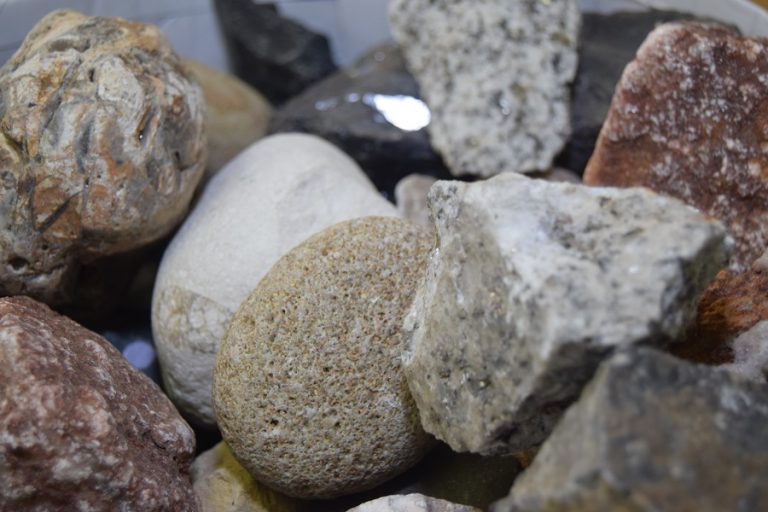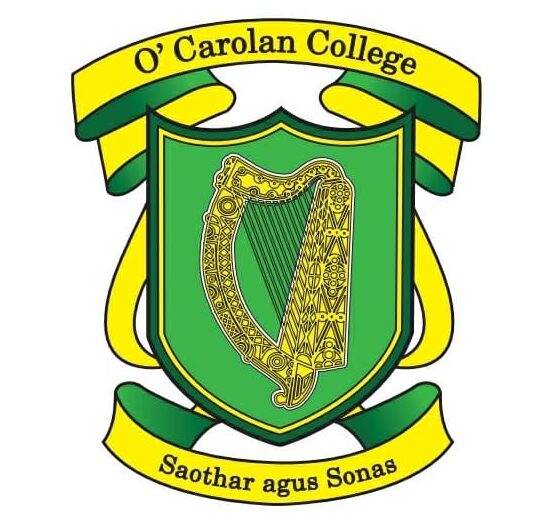Geography
Geography is a compulsory subject at Junior Level, and is optional at Senior Level. The Geography Rooms; Room 3, Room 11 and Room 42 continue to be a hive of activity throughout the year. Geography classes at both Senior and Junior Level occupy the designated rooms daily. Evidence of activity‐based learning can be seen in the Geography rooms where numerous posters, projects and models are on display. At Junior Level, there are three classes per week, while five classes per week, (one single class and two double classes) are allocated at Senior Level. In our teaching of the curriculum, we place emphasis on the interesting geographic elements of our local area by using local examples, case studies and maps.

- Their ability to reflect on the development of their geographical thinking through engaging in the research process in completing the My Geography CBA.
- Their ability to evaluate new knowledge or understanding that has emerged through their experience of the Classroom-Based Assessment.
- Their ability to reflect on the skills they have developed, and their capacity to apply them to unfamiliar situations in the future.
- Their ability to reflect on how their appreciation of Geography has been influenced through the experience of the Classroom-Based Assessment.
- Their reflections on how their experience of My geography has influenced their attitudes and values.
Text Books
- Junior Cycle: Real World Geography (Folens), Peter Lydon and Tara Fitzharris.
- Senior Cycle: Planet & People (Mentor) by Sue Honan and Sue Mulholland.
Teaching & Learning / Course Content
The department is currently implementing the new Junior Cycle. The focus is on the study of the Earth’s landscapes, peoples, places, and environments and how it empowers the person to explore and understand the world around them. Students develop the skills to read their environment, enabling them to interpret the physical landscape, observe climatic events with an informed eye and discuss world events in a knowledgeable manner. Students are growing up in a globalised, dynamic world and geography provides a medium to explore current events in our world.
The skills developed through the subject are transferable and will benefit students in study and life. Geography encourages structured inquiry: this critical thinking involves students asking questions, gathering data, evaluating and interpreting, and presenting information. It encourages collaboration and communication with their peers.
Junior Cycle Geography focuses on developing students’ knowledge and skills. This is achieved through the three interconnected strands:
- Exploring the physical world
- Exploring how we interact with the physical world
- Exploring people, place, and change
- Interactions refers to how systems, both human and natural, interact
- Interconnections refers to the linkage between people, places, environments, and spatial patterns
- Implications refers to the individual’s ability to reason the consequences of their decision making and that of others
Senior Cycle
Transition Year Environmental and Economic studies (EES):
Geography Tours / Extra-curricular Activities
Department members:
Marie O’Connor, Shane Quigley, Ciara Feeley, Charlotte Shevlin, Jade McMahon & Bernie Sherlock
Department Co‐ordinator 2023/2024: Marie O’ Connor
Provision of Geography in the school
Geography is a compulsory subject at Junior Level and is optional at Senior Level. The Geography Rooms continue to be a hive of activity throughout the year. Geography classes at both Senior and Junior Level occupy the designated rooms daily. Evidence of activity‐based learning can be seen in the Geography rooms where numerous posters, projects and models are on display. At Junior Level, there are three classes per week, while five classes per week, (one single class and two double classes) are allocated at Senior Level. In our teaching of the curriculum, we place emphasis on the interesting geographic elements of our local area by using local examples, case studies and maps.
Planning and Preparation
Members of the Geography Department have attended ongoing in‐services on the Geography Syllabus at both Junior and Senior Level as part of their professional development. The department meets regularly to co-ordinate geography trips, in-school activities and classroom teaching. A number of formal and many informal meetings were held during the year to plan and review work and progress and to examine the report by the Department of Education and Skills, in-service resources etc. As a department, we are extremely encouraged by the overall standard of results and the large number of students taking Higher Level Geography at both Junior and Leaving Certificate. Geography continues to be a very popular subject option for Leaving Certificate.
ICT & Geography
All classrooms in O’Carolan College have computers and interactive overhead projectors which are used daily. Google Earth and specialised software are available to the department courtesy of LMETB.
Textbooks
Junior Cycle: Real World Geography (Folens) Peter Lydon and Tara Fitzharris.
Senior Cycle: Planet & People (Mentor) by Sue Honan and Sue Mulholland.
Teaching and Learning / Course Content
The department is currently implementing the new Junior Cycle. The focus is on the study of the Earth’s landscapes, peoples, places, and environments and how it empowers the person to explore and understand the world around them. Students develop the skills to read their environment, enabling them to interpret the physical landscape, observe climatic events with an informed eye and discuss world events in a knowledgeable manner. Students are growing up in a globalised, dynamic world and geography provides a medium to explore current events in our world.
The skills developed through the subject are transferrable and will benefit students in study and life. Geography encourages structured inquiry: this critical thinking involves students asking questions, gathering data, evaluating and interpreting, and presenting information. It encourages collaboration and communication with their peers.
Junior Cycle Geography focuses on developing students’ knowledge and skills. This is achieved through the three interconnected strands:
- Exploring the physical world;
- Exploring how we interact with the physical world;
- Exploring people, place, and change.
The overarching concept of Junior Cycle Geography is Geoliteracy. This refers to students’ ability to develop far-reaching decisions through geographical thinking and reasoning. Geoliteracy provides the framework for understanding in Geography and is threaded throughout learning and teaching of Geography.
The core components of Geoliteracy are the three I’s:
- interactions – refers to how systems, both human and natural, interact
- interconnections – refers to the linkage between people, places, environments, and spatial patterns
- implications – refers to the individual’s ability to reason the consequences of their decision making and that of others.
Assessment
The Assessment of geography for the purpose of the Junior Cycle Profile of Achievement (JCPA) will comprise two Classroom-Based Assessments: Geography in the news; and My Geography. The second Classroom-Based Assessment will have a written Assessment Task that will be prepared and marked, along with a final examination, by the State Examinations Commission.(Alterations were made to this due to the pandemic)
Senior Cycle:
We had one Fifth Year class and two Sixth Year classes in 2023/2024.
The senior cycle course is divided into core, elective and optional units of study. Students studied physical geography, regional geography, patterns and processes in the Economic Environment and Geoecology. Students developed important geographical skills and an understanding of the changing relationships between the physical and human worlds. Through their study of geography, students develop geographical skills that will help them to make informed judgements about issues at local, national and international levels. Students had ample opportunity to acquire the practical skills of a geographer in observing, presenting and interpreting evidence from a wide variety of sources. Students studied the Bunnoe River in Co. Monaghan and completed a detailed investigation of the geomorphic processes of a fluvial environment. This was part of their compulsory fieldwork unit and is worth 20%.
Transition Year – Environmental and Economic studies (EES)
There is a Geography module as part of the Transition Year course in O’Carolan College. Classes in Transition Year took part in the Global Worldwise Schools programme. This programme encourages students to engage with the 17 Sustainable Development Goals. Students also completed a Climate Change module and a Regional Geography module on Southwest USA.
Geography Tours / Extra-curricular activities
The department endeavours to promote among students a keen awareness of the environment which surrounds them and to facilitate this, students were involved in many geographic activities and field trips this year in O’Carolan College.
First Year students completed projects on tectonic activity by creating models and posters, completing experiments and examining rock samples.
Fifth Year students took part in an urban field study of Dublin City Centre in March. Students examined land use and regeneration in various parts of the city centre. The trip was concluded with a spin on the LUAS – a first for many students!
Sixth Year students travelled to the Tanagh Outdoor Training and Adventure Centre in Dartrey, Co. Monaghan in February to carry out their Geographical Investigation project in the Bunnoe River.
